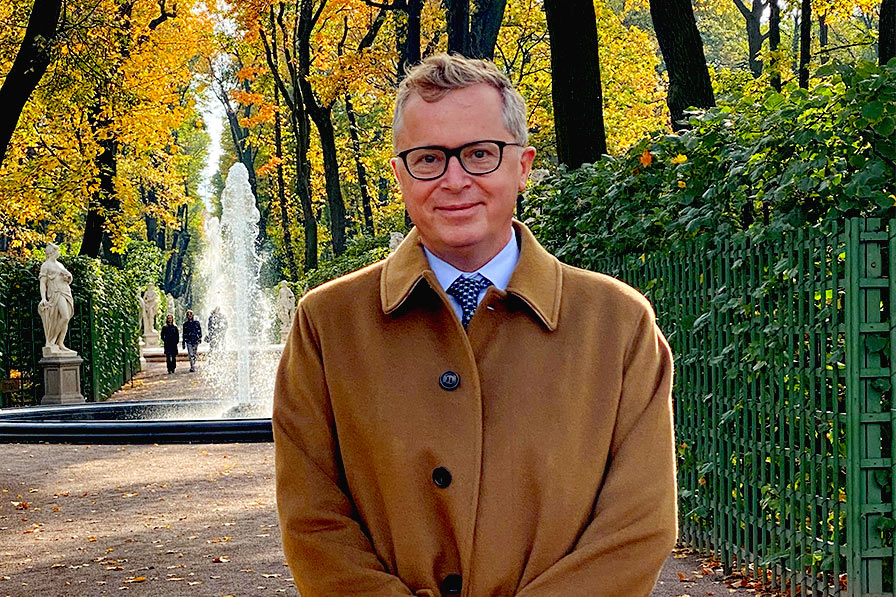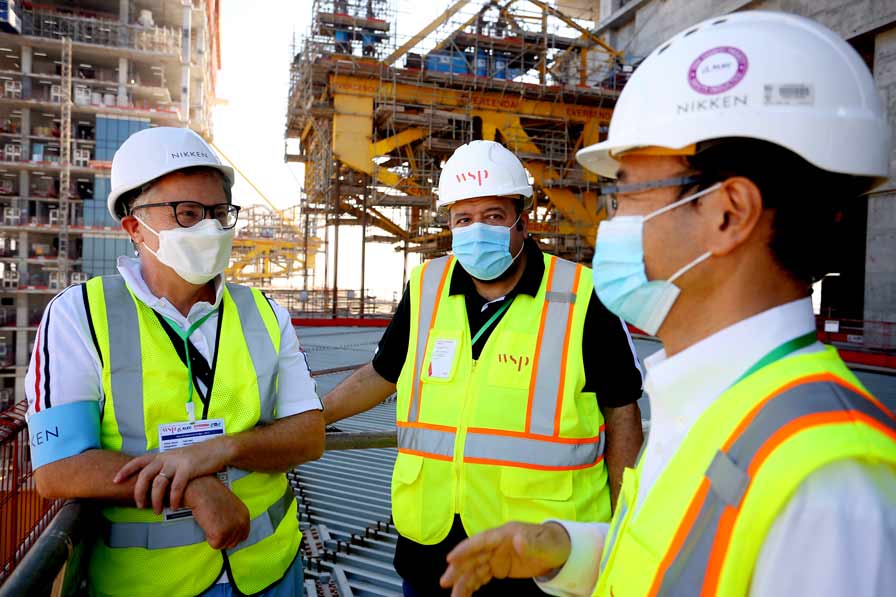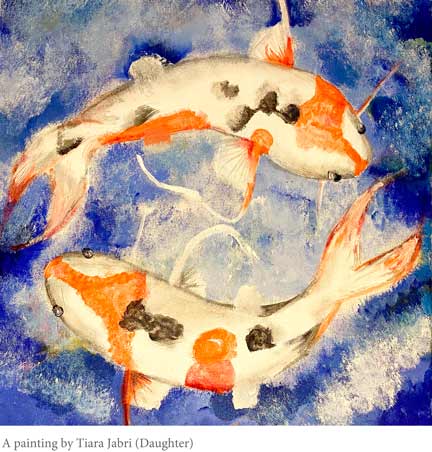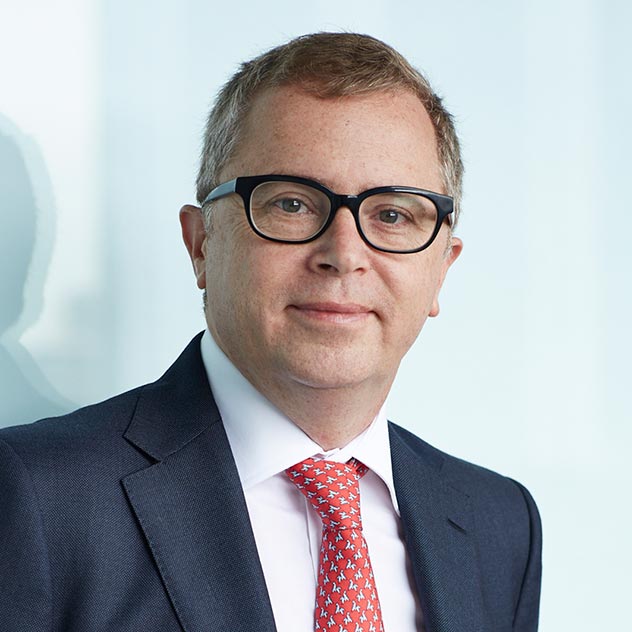Towards a new society brought about by the COVID-19 pandemic;
COVID 19 - PARADIGM SHIFT Challenges and Opportunities
Fadi Jabri, Executive Officer, Principal, Global Business & Management Group (GCC/CIS/India), Global Business and Management Department, NIKKEN SEKKEI LTD
(The positions in this article were current at the time of publication.)
Scroll Down
Dubai. March 22, 2020. Curfew. Suddenly my whole world shrunk to be confined within walls of my living premise. The distances between home, work and school diminished to “0”. It takes me now seconds to move from my bed to my work desk, and start video conferencing with the world. And the same for my daughter in the next room who switched overnight to e-learning. Groceries are delivered to the doorstep. Getting out requires a permit.
Out of my window I see the world’s busiest international airport with usually a flight taking off every 90 seconds is dead quiet. The frantic dynamic world abruptly came to a calm stand still.
The skies became bluer. The chirping noise of birds became louder. Air cleaner. Neighbors nicer. As if Mother Nature decided to reset and reboot our pace.
 Fadi Jabri, Executive Officer, Principal, Global Business & Management Group (GCC/CIS/India), Global Business and Management Department, NIKKEN SEKKEI LTD
Fadi Jabri, Executive Officer, Principal, Global Business & Management Group (GCC/CIS/India), Global Business and Management Department, NIKKEN SEKKEI LTD
(The positions in this article were current at the time of publication.)
Remedy / Adaptation
We took immediate action to ensure use of the latest infrastructure at home which would allow us seamless collaboration remotely.
Communication tools, mapping technologies, 3D modeling, and research information allowed us and with a high degree of precision to develop designs and provide supervision, even without visiting the project site. It was an eye opener that we could actually conduct design in a transboundary manner, engaging multiple locations, and individuals according to their set of expertise to deliver meaningful results. The Barcelona, Dubai, Bangkok, and Tokyo offices joined forces to work on projects across Russia, India, Saudi Arabia, and Kyrgyzstan among others. It was magical to me.

Side effects
Creative and great ideas are born out of serendipitous encounters, or an unplanned fortunate discovery. Such can only be through true human interaction, which ZOOM, HOPIN and alike are yet to deliver.
Looking ahead
It also challenged hierarchical and vertical organizations, and challenged the notion of bringing large crowds under one roof, and centralization.
The new tendency now is how to spread resources, adopting a network organizational structure, focusing on open communication and relationships rather than traditional hierarchy.

Agility and speed, the ability to quickly restructure, regroup, teaming up with freelancers, partners, and setting instant satellite offices will be essential for remote working.
Homes are likely to undergo notable changes in the future, to be reinforced with facilities and infrastructure facilitating comfortable remote working, as well as being aging society friendly, and having higher hygiene and safety monitoring.

Asian cities showed the importance of discipline, and made a remarkable effort to contain the spread in high density areas. Aviation, tourism, and hospitality have become domestic oriented, stimulating local economies and giving rebirth to local infrastructure.
For us as Urban Designers, Architects, and Engineers、post COVID opens a new era of opportunities to challenge the conventional working, living, studying, and leisure environment, to make our world a better place.
